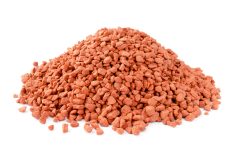Chicago | Reuters – The world’s four largest agribusinesses are working together to standardize and digitize international grain trades using technologies such as blockchain and artificial intelligence, the companies announced on Thursday.
Archer Daniels Midland Co, Bunge Ltd, Cargill Inc and Louis Dreyfus Co, known collectively as the ABCDs of global grain trading, said the effort would make international commodities trades more efficient and transparent and reduce costs.
The aim is to replace a system that relies on paper contracts and invoices and manual payments with an automated electronic system, the companies said in a joint statement.
Read Also

U.S. grains: Soy futures post biggest monthly gain in nearly five years on China trade optimism
U.S. soybean futures climbed to a 15-month high and posted their biggest monthly gain in nearly five years on Friday following a rally fueled by the prospect of revived exports to China.
The first area the companies are targeting is automating grain and oilseed post-trade processes, according to an emailed statement from all four companies to Reuters.
It is a specific problem they are trying to make simpler and cheaper: 275 million emails are sent annually by commodity traders to process 11,000 shipments of grain transported on the ocean, they said.
“Many aspects of agricultural trading are highly manual and costly: paper documents, facsimiles, manual retyping of data, and so on,” the companies said. “And many transactions still utilize hard copy transfers of documents.
The companies did not disclose further details of the effort or how soon a new system would be rolled out. They are hoping other international grain traders – such as China’s Cofco and Japan’s Mitsui – will join their effort, the companies said.
The effort mirrors moves by other companies and industries to make supply chains more traceable by using technologies such as blockchain, which is a shared record of data maintained by a network of computers, rather than a trusted third party.
Louis Dreyfus completed the first agricultural commodity transaction using blockchain in January, CEO Ian McIntosh said in the statement.
– Additional reporting by P.J. Huffstutter in Chicago.












